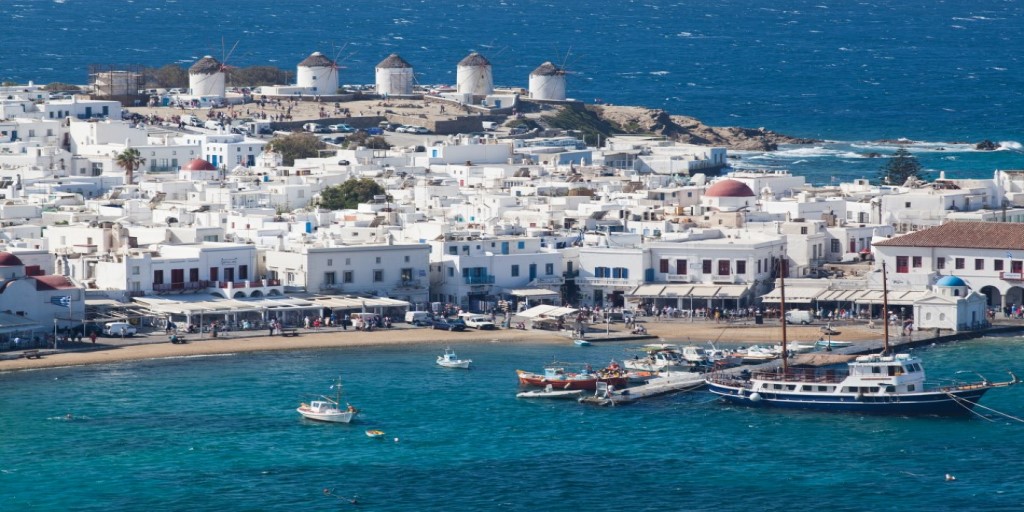The Best Time To Visit Greece
The Best Time to Visit Greece: A Seasonal Guide
Greece, the cradle of Western civilization, is a land of ancient wonders, breathtaking landscapes, and sun-kissed islands. From the historical sites of Athens to the idyllic beaches of Santorini and the lush forests of the Peloponnese, Greece offers a diverse range of experiences that captivate travelers year-round. However, the best time to visit can vary depending on your interests and what you hope to experience. In this guide, we’ll explore the seasonal highlights of Greece to help you plan your perfect Greek getaway.

Spring (March to May)
Spring is a fantastic time to visit Greece, especially if you prefer milder temperatures, fewer crowds, and blooming landscapes. The weather during spring is generally pleasant, with temperatures ranging from 15°C to 25°C, making it ideal for outdoor activities and sightseeing.
Athens: Springtime in Athens is magical. The city’s ancient landmarks, such as the Acropolis, Parthenon, and Ancient Agora, are less crowded, allowing you to explore them in relative peace. The National Garden and Mount Lycabettus are also worth a visit, offering a tranquil escape from the bustling city.
Islands: The Greek islands begin to awaken from their winter slumber in spring. Islands like Mykonos, Santorini, and Crete offer a more authentic experience during this time, as many locals are preparing for the summer season. It’s a great time to enjoy leisurely walks, visit archaeological sites, and sample fresh seafood at local tavernas. Best of Greece Packages
Peloponnese: The Peloponnese peninsula is a hidden gem of Greece, with its ancient ruins, medieval castles, and scenic landscapes. Spring is the perfect time to explore sites like Ancient Olympia, Epidaurus, and Mycenae, as well as hike through the lush forests of Mount Taygetos and swim in the crystal-clear waters of Voidokilia Beach.
Summer (June to August)
Summer is peak tourist season in Greece, with long sunny days, warm temperatures ranging from 25°C to 35°C, and vibrant nightlife. While the beaches and islands are bustling with activity, popular tourist destinations like Athens, Thessaloniki, and Delphi can get quite crowded. Here’s what to expect during the summer months:
Islands: The Greek islands are a haven for sun-seekers and party-goers during summer. From the cosmopolitan vibes of Mykonos and the romantic sunsets of Santorini to the pristine beaches of Paros and the traditional charm of Naxos, there’s an island to suit every taste and budget.

Beaches: Greece is home to some of the world’s most beautiful beaches. Whether you prefer secluded coves, family-friendly shores, or vibrant beach bars, you’ll find it all along the Greek coastline. Some must-visit beaches include Navagio Beach in Zakynthos, Elafonissi Beach in Crete, and Porto Katsiki in Lefkada.
Outdoor Activities: Summer is the perfect time to enjoy outdoor activities like sailing, snorkeling, scuba diving, and hiking. Greece’s diverse landscapes, from mountains and forests to islands and coastlines, offer endless opportunities for adventure and exploration.
Autumn (September to November)
Autumn is a wonderful time to visit Greece, as the summer crowds dissipate, the weather remains pleasant, and the landscapes are transformed by vibrant autumnal colors. Temperatures during autumn range from 15°C to 25°C, making it ideal for sightseeing, outdoor activities, and cultural exploration.
Athens: Autumn is arguably the best time to visit Athens. The city takes on a more relaxed vibe, making it easier to explore its historical sites, museums, and neighborhoods. Don’t miss the Athens International Film Festival in September, where you can watch a diverse range of films from around the world.
Meteora: The monasteries of Meteora are a must-visit destination in Greece, especially in autumn when the surrounding landscapes are bathed in golden hues. The cooler temperatures also make it easier to hike between the monasteries and enjoy panoramic views of the rugged landscape.
Wine Regions: Greece is home to several wine-producing regions, such as Santorini, Nemea, and Drama. Autumn is harvest season, making it the perfect time to visit vineyards, attend wine festivals, and sample some of Greece’s finest wines.
Winter (December to February)
Winter in Greece varies greatly depending on the region. While the islands and coastal areas experience mild winters, mainland Greece and mountainous regions can get quite cold and snowy. Here’s what to expect during the winter months:
Ski Resorts: Greece boasts several ski resorts, including Mount Parnassos, Mount Pelion, and Mount Vermio. Winter sports enthusiasts can enjoy skiing, snowboarding, and snowshoeing against the backdrop of stunning mountain landscapes.

Athens: While Athens may not be a typical winter destination, it still offers plenty to see and do. Explore the city’s museums, art galleries, and indoor attractions, such as the Acropolis Museum, National Archaeological Museum, and Benaki Museum. Warm up with a cup of traditional Greek coffee or enjoy a hearty meal at a cozy taverna.
Thermal Springs: Greece is renowned for its natural thermal springs and spa resorts. Places like Loutra Pozar in Macedonia, Edipsos in Evia, and Kaiafas in Peloponnese offer a relaxing retreat from the cold, where you can unwind in thermal pools and indulge in spa treatments.
In conclusion, the best time to visit Greece depends on your interests, budget, and preferred activities. Whether you’re looking to soak up the sun on a stunning beach, explore ancient ruins, indulge in delicious Greek cuisine, or embark on outdoor adventures, Greece offers something for everyone year-round. So, start planning your Greek getaway today and discover the beauty and charm of this timeless destination!